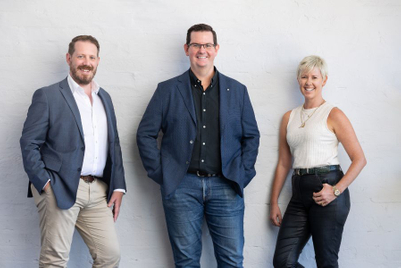
The report draws on a survey by Opinium of 550 senior marketing figures in 11 countries, including the UK and US, and shows the extent to which influencers are being used.
Some 75% of respondents are already using B2B influencer marketing – 93% of whom are planning to increase their use of influencers, according to the Influencing Business report.
And of the minority who do not currently use influencers, more than half (53%) plan to in the future, it says.
In addition to the survey data, the report is informed by a series of in-depth interviews with CMOs at major companies such as LinkedIn, Dell, EY, IBM, Boots and Ben & Jerry’s.
Growth area
Writing in the foreword, Rahul Titus, global head of influence at Ogilvy, says: “The world of influencer marketing has evolved – and grown exponentially… Goldman Sachs estimates that the Creator Economy will reach $500 billion by 2027.”
He adds: “Carefully selected Influencer partnerships now play an integral role in how businesses consume, verify and act on information. But not enough brands develop the deep, meaningful, and complex relationships with Influencers their audience demands.”
The report points out that, while the use of influencers in consumer comms “more often demands trendsetters and tastemakers”, the B2B sector “requires credible expertise rooted in proven experience that contributes to professional opinion”.
Some 92% of the survey respondents agree that using B2B influencers for “hyper-targeted marketing or personalised messaging is an effective strategy for increasing brand consideration and customer acquisition”.
Almost half (49%) believe influencers help their brands achieve “a more credible, believable, and trusted opinion than they could achieve by themselves”.
And four in 10 cite influencer campaigns as having generated improved leads or sales.
Successful partnerships
Beyond LinkedIn, 50% of B2B marketing teams consider YouTube the next most significant platform for influencer campaigns, closely followed by Facebook (48%) and Instagram (46%). The report states that other platforms such as WhatsApp (14%), Reddit (seven%), and Telegram (nine%) “show untapped potential for reaching professional audiences when leveraged effectively”.
It also recommends that companies choose the right influencer for them, ensuring “their voice and values fit with yours”, and invest in building “strong, meaningful, long-term relationships” with them.
Employees should also be considered as potential influencers and are an “untapped marketing resource”, the report says.
One of the senior figures interviewed for the report, Yogesh Dhingra, chief executive of Smartr Logistics, described influencers as “successful individuals with established names and trustworthiness in the industry, with proven and successful careers in their fields”. He added: “Influencers bring value to B2B marketing due to their credibility.”
And Jason Elliott, head of portfolio marketing at Nokia, commented: “Having developed an Influence programme that allows our internal specialists to drive the credibility of our content with external experts has been really powerful for the business.”



.jpg&h=334&w=500&q=100&v=20250320&c=1)


.png&h=334&w=500&q=100&v=20250320&c=1)




.png&h=334&w=500&q=100&v=20250320&c=1)

.jpg&h=268&w=401&q=100&v=20250320&c=1)
.png&h=268&w=401&q=100&v=20250320&c=1)




.png&h=268&w=401&q=100&v=20250320&c=1)
.png&h=268&w=401&q=100&v=20250320&c=1)